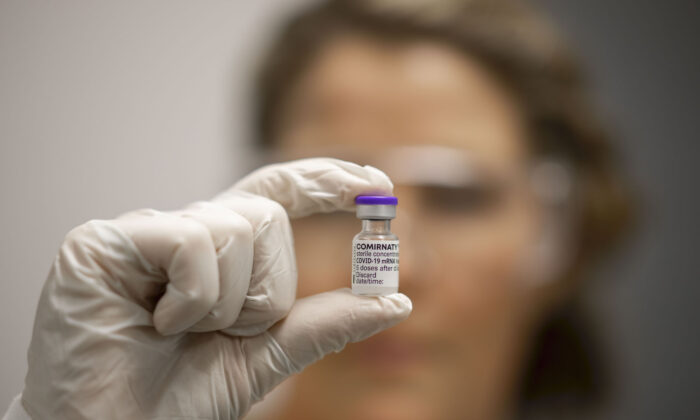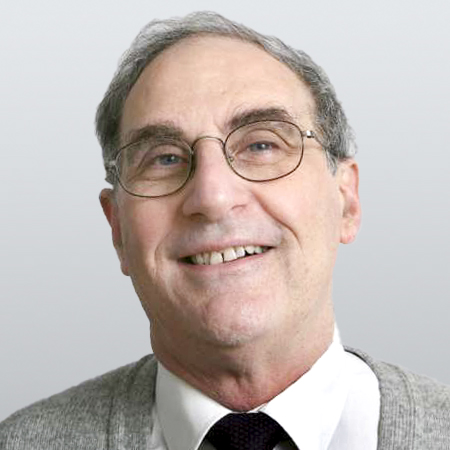
A vial of COVID-19 vaccine is held by Advanced Pharmacist Rachael Raleigh at Gold Coast University Hospital in Gold Coast, Australia, on Feb. 22, 2021. (Glenn Hunt/Getty Images)
Viewpoints
The Biggest COVID-19 Vaccine Skeptics? Frontline Health Care Workers

Lawrence Solomon
March 11, 2021 Updated: March 11, 2021
biggersmaller
Print
Commentary
What do frontline health care workers and first responders know about COVID-19 vaccines that politicians and their public health advisers don’t?
According to a
January analysis by Gallup, 51 percent of health care workers and first responders polled in December were unconvinced of the merits of getting vaccinated, even if the vaccine “was free, available, FDA approved and 90% effective.”
Gallup found these results especially concerning since those at highest risk of exposure to COVID-19—the professionals required to meet America’s health, safety, and critical economic needs whom the National Academies of Engineering, Science and Medicine define as “Tier 1A workers”—were the likeliest to refuse
vaccination (34 percent).
The frontline workers proved to be as defiant as Gallup’s survey of their intentions anticipated. In California, over half of Tehama County’s hospital workers at St. Elizabeth Community Hospital, an estimated 50 percent of frontline workers in Riverside County, and 20 percent to 40 percent in L.A. County refused the vaccine, according to a report in the
Los Angeles Times.
In Georgia, according to an estimate in the
Atlanta Journal-Constitution, only 30 percent of health care workers have been inoculated. In Ohio, Gov.
Mike DeWine reported that 60 percent of nursing-home workers refused the vaccine. In Texas, the
Texas Tribune reported in February that home-health and assisted-living agencies may not be able to service their clients because so many caregivers are refusing to be vaccinated. A
CDC survey of skilled-nursing facilities published in early February found that fewer than 40 percent of staff took at least one dose of a
COVID-19 vaccine.
Outside the United States, frontline workers are likewise skeptical. On March 2,
Reuters reported that at most half of the nursing staff in Switzerland’s medical sector, only 30 percent of the staff at Germany’s BeneVit Group care-home operator, and about half of the health workers in French care homes were willing to be vaccinated.
PBS on the same day reported that since “India started administering the second vaccine dose two weeks ago, half of the frontline workers and nearly 40 percent of health care workers have not shown up.” In Canada,
CTV provided an anecdotal report that many long-term-care workers in Montreal are “flat-out refusing” to be inoculated.
For health care workers around the world, their dilemma is who to believe. Their government employers and the pharmaceutical companies, who insist the vaccines’ benefits far outweigh the risks? Or their own eyes?
Many frontline workers see first-hand those who fall sick or die after receiving a COVID-19 vaccine, and in the absence of independent analyses judge for themselves whether the vaccine is implicated. They noted
23 nursing-home deaths in Norway and
hundreds of hospitalizations in Israel following vaccination.








